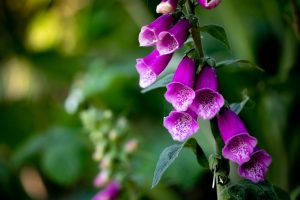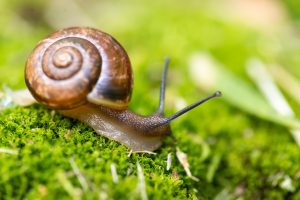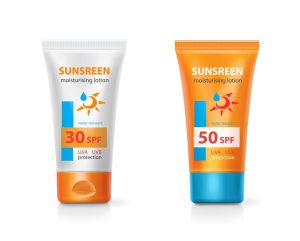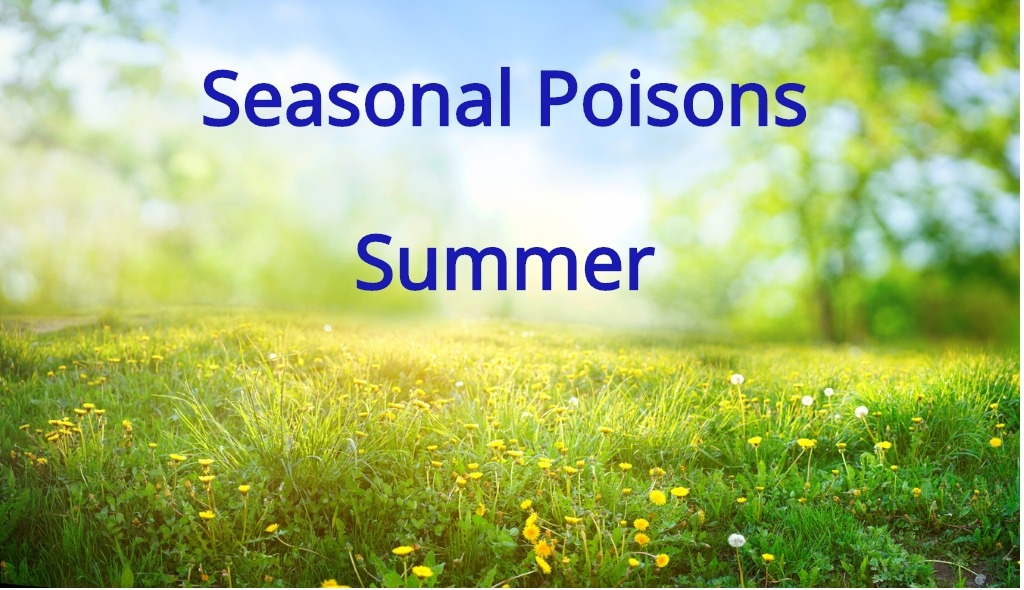This summer, many children will be exposed to everyday poisons and some need medical attention as a result of unintentional / accidental poisoning. In addition to the usual poisons such as medicines and household chemicals, there are some seasonal poisons to keep an eye out for.
 Garden plants, shrubs, and trees are often highly coloured during the summer months and their leaves, flowers, berries, and seeds are attractive to children. There are many varieties of plants found growing in Ireland, some of which are non-toxic or low in toxicity (e.g. Daisy, Dandelion, Fuchsia, Primrose), and some which are considered more poisonous (e.g. Foxglove, Oleander, Lily- of-the-Valley, Lupin). Children should be taught not to play with, and not to put plants in their mouths. It is a good idea to consult with your local garden centre when buying plants to ensure they are suitable and non-toxic. If the plant has an identification label attached to it, it is advisable to leave it in place, in case there is a need to identify the plant species at a later stage.
Garden plants, shrubs, and trees are often highly coloured during the summer months and their leaves, flowers, berries, and seeds are attractive to children. There are many varieties of plants found growing in Ireland, some of which are non-toxic or low in toxicity (e.g. Daisy, Dandelion, Fuchsia, Primrose), and some which are considered more poisonous (e.g. Foxglove, Oleander, Lily- of-the-Valley, Lupin). Children should be taught not to play with, and not to put plants in their mouths. It is a good idea to consult with your local garden centre when buying plants to ensure they are suitable and non-toxic. If the plant has an identification label attached to it, it is advisable to leave it in place, in case there is a need to identify the plant species at a later stage.- Wild plants found in the countryside may be poisonous including Hemlock, Lords and Ladies (also called Cuckoo-pint or Arum Maculatum), and Deadly Nightshade. Some have shiny berries that children could easily mistake for fruit. Some plants are dangerous by skin contact. Giant Hogweed is a particularly nasty plant species, which grows wild and can cause severe reactions after skin exposure. The chemicals released onto the skin can cause severe itching, rash, burning, and blisters, and symptoms can be made worse by exposure to sunlight.
- Mushrooms are commonly found growing during the summer and autumn months. It is important to always seek medical advice following accidental ingestion of wild mushrooms, because some species are highly poisonous and symptoms may be delayed for several hours.
 Slugs, snails, and worms are not considered to be poisonous, however they are not meant to be eaten and may cause nausea, vomiting, tummy upset, and there is also a possibility of bacterial infection in children.
Slugs, snails, and worms are not considered to be poisonous, however they are not meant to be eaten and may cause nausea, vomiting, tummy upset, and there is also a possibility of bacterial infection in children.- Gardening products including slug pellets, ant-killer, rat poison, weed-killer, fertilisers, and pesticides are usually placed at ground level and therefore, young children are more at risk of poisoning with these products. If it is necessary to use slug-pellets or rat poison, it is best to do so when young children are not around, or when they are closely supervised. It is important never to leave containers open when they are not in use, even for a short time. Never remove labels from bottles, as they often contain important information such as the ingredients, or the manufacturer details, which can be important in poisoning emergencies. Never transfer products from their original container to a soft-drink / water bottle.
- Medicines that are more commonly encountered during the summer months include anti-histamines and asthma medications. All medicines are potentially dangerous and should never be stored on bedside lockers, in cupboards, drawers, purses, or handbags. Accidental poisoning can be prevented by ensuring that medicines are kept in their original containers, and stored in secured medicine cabinets, fixed at an appropriate height out of the reach of children.
 Cosmetic and personal hygiene products that are used commonly over the summer include insect-repellent, sun lotions, oils, creams, and emollients. Hygiene products such as perfume, aftershave, deodorant, hair-dye, mouthwash, and hand sanitisers are potentially toxic, and should be kept away from children
Cosmetic and personal hygiene products that are used commonly over the summer include insect-repellent, sun lotions, oils, creams, and emollients. Hygiene products such as perfume, aftershave, deodorant, hair-dye, mouthwash, and hand sanitisers are potentially toxic, and should be kept away from children- Barbeque lighter fluid, paraffin, and white spirits can cause harm even if swallowed in small amounts. They can easily be aspirated into the lungs and cause breathing problems, especially if a child has coughing, choking, or vomiting. It is important to always seek medical advice as symptoms may be delayed for several hours.
- Bee stings and wasp stings often occur during the summer months and can cause immediate pain, redness, and itching at the site of the sting. Some people may develop severe allergic reactions to stings and require urgent medical attention. You should always seek medical advice if there are multiple stings, stings close to the mouth, or if nausea, vomiting, dizziness, or swelling occurs.
Poisoning can be easily prevented by effectively supervising children, ensuring their surroundings are safe, and storing all poisons out of the reach and out of the sight of children. Our motto is “Don’t delay put poisons away ! Poison proof your home today”
If poisoning occurs, members of the public can call the National Poisons Information Centre on 01 809 2166 for prompt evidence-based medical advice on what to do.

